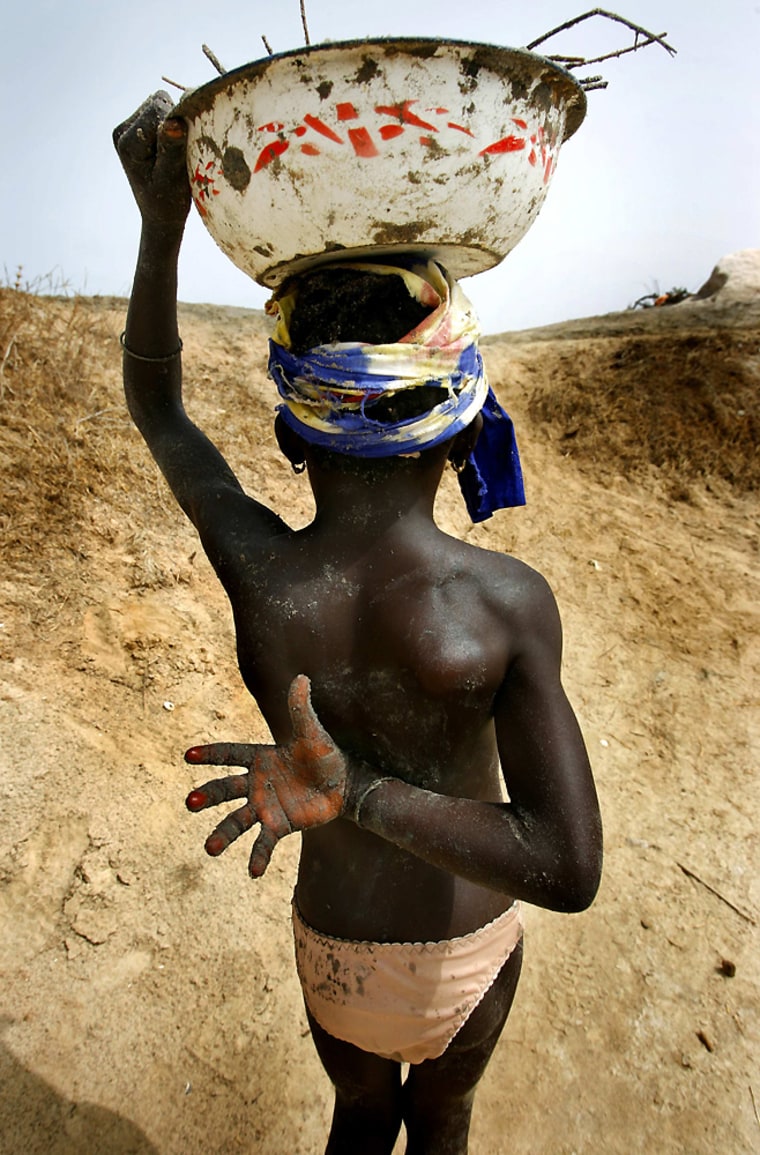In a dirty white T-shirt hanging down to his knees, four-year-old Harouna Balde begs for coins in bare feet among the traffic on the polluted streets of Dakar.
Holding a rusty begging tin that is the trademark of the “talibes” — students at Senegal’s Koranic schools — Balde says he must take back money or face a beating from his religious teacher, or marabout.
“I must bring back 500 francs, about $0.90, every day to my master or face punishment,” says the tiny boy, who travels from his squalid daara, or religious school, in the distant suburb of Thiaroye to beg all day in the city center.
Balde is one of an estimated 100,000 children begging on the streets of Senegal — about 1 percent of the population, according to U.N. officials — most of them sent out by their religious teachers.
The begging is a modern corruption of a Senegalese tradition, which allowed poor rural families to provide their children with a basic education and sometimes send them to towns where they might have greater opportunities.
Children are being smuggled
Now, the booming industry has become so successful that children are smuggled from neighboring Mali, Gambia or Mauritania to beg in Dakar, U.N. child agency UNICEF said. Balde was separated from his parents in Guinea Bissau.
“The problem is mushrooming,” Jean-Claude Legrand, West and Central Africa child protection officer with UNICEF, said in an interview ahead of Friday’s Day of the African Child.
“The issue of begging children in Senegal is becoming a sub-regional child trafficking problem.”
Every year thousands of children are smuggled across West Africa, UNICEF says. Many end up as victims of forced labor, sexual abuse and prostitution.
With migration traditionally an important part of life, West African society has relied on extended families to raise and educate children. Poor parents would often send their offspring to richer relatives to be raised and educated.
Period of huge change
In West African countries, more than half of children are in the care of other families, Legrand said. But the advent of a modern, commercial culture is weakening traditional values that tended to protect such children.
“Growing poverty is forcing people to develop new survival strategies, which sometimes means using the resources of the whole family,” Legrand said.
“We are in a period of huge change, with mass migration to urban areas. It becomes more and more a system where children get exploited.”
In war-divided Ivory Coast, planters long preferred to employ helpers to harvest cocoa, sending their own children to school. But economic hardship and a 2002-03 war forced them first to hire foreign children and finally use their own.
Until recently most countries in West Africa did not have laws to penalize rape or child trafficking, although the situation was improving, Legrand said.
Periphery of modernity
But as one government cracked down on abuse, the problem moved to another country. A recent drive against child prostitution in Gambia had driven sex tourism to other parts of the region, such as Togo, Legrand said.
The threat of U.S. sanctions on cocoa had improved the situation in Ivory Coast, but child traffickers had moved their attention to cotton plantations in Mali and Burkina Faso.
“Africa is in a worse situation because it is on the periphery of modernity: it is excluded from the benefits of the world economy but at the same time it must form part of it,” Legrand said.
